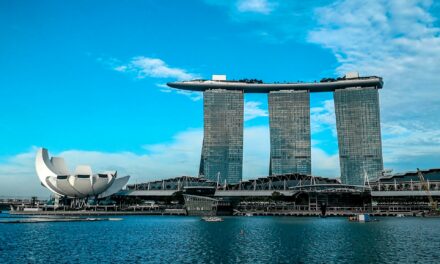Singapore and Malaysia inked an agreement on Thursday which aimed at expanding economic connectivity between the countries.
The agreement will see the creation of a special economic zone between Singapore and the neighbouring Malaysian state of Johor.
The Johor-Singapore Special Economic Zone will facilitate the cross-border flow of goods and people between the two nations.
“[It will also] bolster the business ecosystem and elevate the economic attractiveness of both Johor and Singapore,” Malaysia’s Minister of Economy Mohd Rafizi Ramli said in a press release.
“I have full confidence that this initiative will herald the commencement of a transformative chapter in our bilateral economic relations, fostering unparalleled connectivity and prosperity for both our great nations.”
The memorandum of understanding was signed by Ramli and Singapore’s Minister for Trade & Industry, Gan Kim Yong.
Both nations have agreed to work towards a full-fledged agreement on the JS-SEZ and provide an update at the 11th Malaysia-Singapore Leaders’ Retreat later this year. Last year’s Malaysia-Singapore Leaders’ Retreat took place in October.
Alongside the agreement, the two neighbours are working on a slew of other initiatives which will build stronger economic ties.
These include the adoption of a passport-free QR code clearance system on both sides; the digitisation of cargo clearance processes at land checkpoints; and a business service centre in Johor to help expedite red tape for Singapore businesses looking to set up in Johor.
Singapore is a large investor in the Malaysian state, with Singapore being Johor’s second-largest foreign investor from January to June in 2022. Singapore contributed to around 70% of Johor’s total foreign direct investment in the manufacturing sector that year.
On a broader scale, both Malaysia and Singapore are each other’s second-largest trading partners. In 2022, trade between the two countries grew 19% from a year prior to SGD153 billion.
In 2022, Singapore was Malaysia’s leading contributor to foreign direct investment, accounting for 21% of Malaysia’s overall FDI.
“The JS-SEZ underscores what Singapore and Malaysia can achieve when our governments and business communities work closely together. It will serve as a bridge for both sides to tap on each other’s complementary strengths and seize opportunities to grow together,” Singapore’s Gan said.







